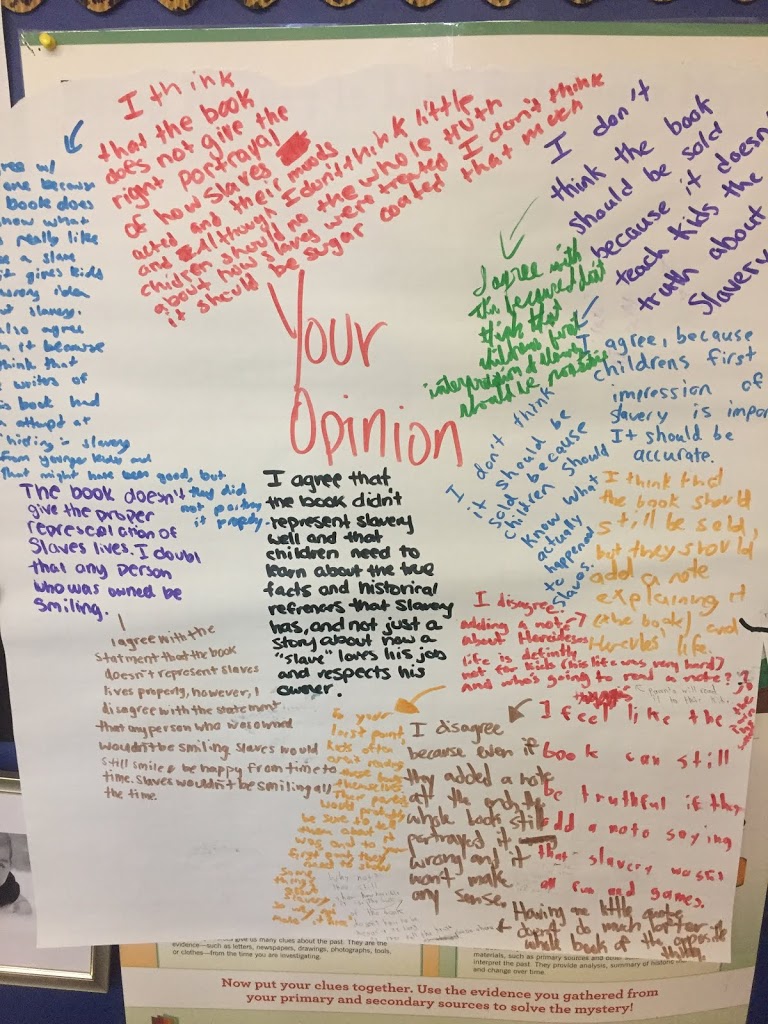
Wow! The Birthday Cake for George Washington lesson has really taken off! Today, students held a “silent discussion” about the book and the NPR article published about the book that students read the night before (you can read the article here). To hold a silent discussion, I posted three pieces of chart paper around the room. One piece was dedicated to students sharing the author’s perspective of the book, one to sharing the views opposed to the book, and one to share their own opinions. When they began, they had to share something on the first piece of paper they encountered, and as they moved around they had to share something new but also respond to a comment already on the sheet.


What I liked about having a discussion this way was that it allowed quiet students to have their voices heard, but also allowed students with opinions in the minority to comfortably express their views. It can be hard to be someone with an opinion that is different from the group’s, but we have to remember that each student is a work in progress. Even if their opinion is narrow-minded, we are there to nurture them and help them grow. In the words of a colleague, they “aren’t done yet”. Having discussions lets them become more exposed to other views, and those in the majority learn how to have civil discourse.
Even silent discussion can be difficult, though. One student was particularly upset about a comment that a student wrote about how “history books never portray slaves as happy. They only write about the bad parts.” She mentioned it during class and we talked about it, allowing the commenter to remain anonymous if they chose. While the intent of the person who made this comment in the silent discussion was not to offend, the perception of the comment is what matters. Listening to how their words made another student feel was a lesson in and of itself.
To end our work with A Birthday Cake for George Washington, students are reading about the real Hercules and his life as well as how the Washingtons actually treated their slaves. They’re also finding out why a slave with “privilege” would be motivated to run. After this investigation, they’ll be writing their own accurate children’s books about Hercules and his life as a slave. One class chose to begin their books with “Hercules had one problem…”; a testament to what they’ve learned and their empathy for those oppressed in our country’s past.
